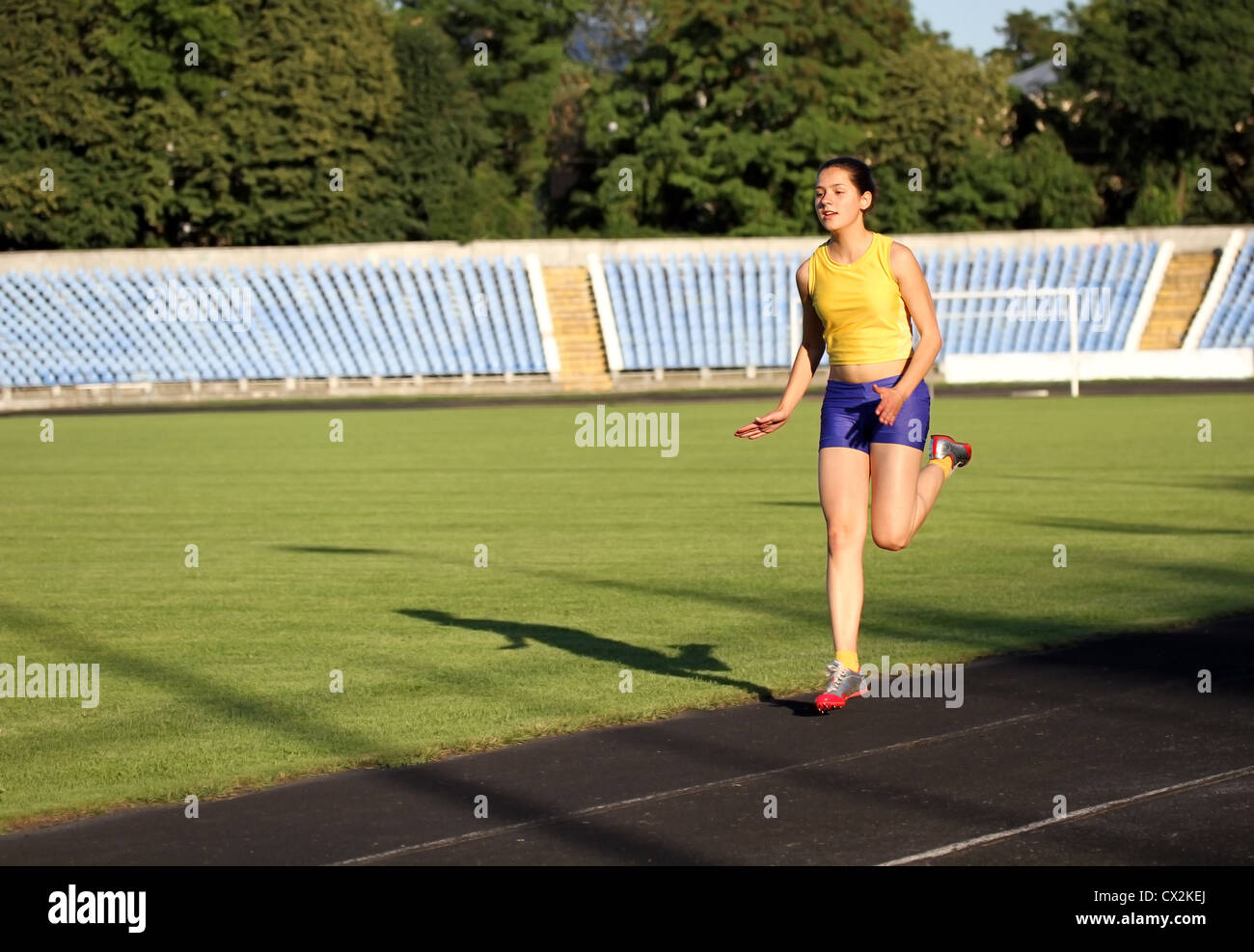

trials in both the 100 and 200 meters, and has logged the eighth fastest time by an American woman in the 100 meters this year. Hill is the youngest track athlete to qualify for the U.S.
Teen trackrunner professional#
The looming Olympic trials, to be held next July in Eugene, Oregon, have expedited the timeline for turning professional because of the training and financial benefits such status confers. “But I want to get faster, and it seems time for the next step.” “Turning professional now was a hard decision because I can’t keep running high school track with my team or run in college,” she said. …”) For breakfast on race days, she eats Froot Loops. She is still very much a high school junior, switching easily between talking about her wanting to win every race she runs to taking trackside selfies with Usain Bolt, discussing her gown for when she was voted to the homecoming court this year and lamenting the missing A in her report card. Now, instead of running high school races she will enter the international professional racing circuit, competing for financial prizes against the world’s fastest runners.

She lost her first race in high school, to an upperclassman, and won every one since.

Hill’s ascendance from the youth sprinting scene in Georgia to the national and now international arena has taken place over a matter of months, as she emerged from an ordinary high school track team with little specialized training. With that talent and drive, we’re betting that she can be the fastest woman in the world someday.” “For us, she’s a Halley’s comet of sport, a teenager who’s tremendously gifted in both mind and body.

“Candace is as good a student as she is an athlete, and we found that intriguing,” said Gene McCarthy, the chief executive of Asics America Group. (Asics and Hill declined to discuss the financial terms of the arrangement.) The contract, which at 10 years is also uncommonly long, effectively serves as an athletic scholarship even though Hill, who plans to attend college while competing, will not be eligible to race collegiately.
Teen trackrunner full#
It will cover full tuition for Hill, who has a 4.6 grade-point average and top-10 class ranking in her magnet school near Atlanta, at any college that admits her. Her potential is considered so huge that she brokered an unusual arrangement with Asics, a running footwear and apparel company.
Teen trackrunner pro#
Middle distance runner Ajee’ Wilson turned pro right after high school instead of competing in college in 2012.īut none of them stood out the way Hill does. Earlier this year, Kaylin Whitney, who set the high school 100-meter record before Hill shattered it, signed with Nike on her 17th birthday. People are training girls harder than ever.”Ĭain was followed by distance runner Alexa Efraimson, who signed with Nike at age 17 in 2014. Forty-plus years since Title IX means we have our first generation of supportive parents and coaches who grew up with the idea of female athletes not being horrifying. “Women have never been more marketable in sports than they are now, from U.S. “It’s the era of the girl in general,” said Lauren Fleshman, a professional runner and five-time NCAA champion at Stanford. This is a path that not even Olympic gold medalists like Carl Lewis, Jackie Joyner-Kersee or Edwin Moses took. Hill is the latest in a recent wave of talented young runners - all female - to join the professional ranks while still in high school, going straight to salaried racing and leapfrogging the traditional step of collegiate competition. Now, at age 16, she has become the youngest track athlete in the United States to turn professional. ATLANTA - When Candace Hill became the fastest teenage girl the United States has ever clocked, sprinting 100 meters in 10.98 seconds in June, she was suddenly good enough not only to qualify for next summer’s Rio Olympics, but also to potentially win a medal there.


 0 kommentar(er)
0 kommentar(er)
